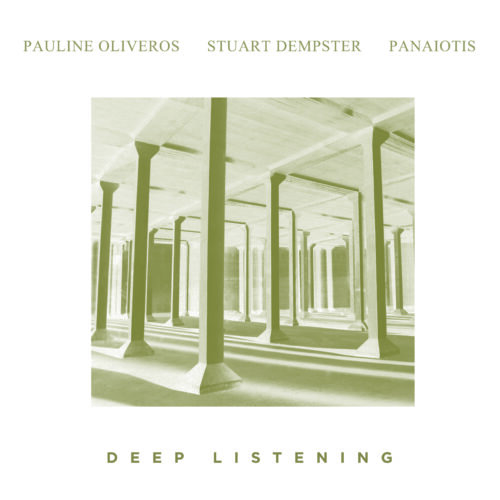Listening closely is one thing, listening deeply another. Pauline Oliveros was the quietest radical in the 20th century. In her feminist writings, she loudly asserted herself against the institutionalised machismo of the academic music world of the 60s and 70s, but her own work as a composer was marked by incomparably subversive subtlety. Although the multi-talented composer, born in 1932, worked with the latest technology right from the start of her career – tapes, Buchla synthesiser, later Max/MSP – her favourite instrument remained an old, traditional one: the accordion. And where the principle of deep listening at first seems solipsistic and somehow obvious, there was also a social, not to say socio-political approach behind it. She came up with the play on words in 1988 while recording in a cistern with Stuart Dempster and Panaiotis alias Peter Ward. The album of the very same name, released a few months later, which had been created deep underground, laid the foundations for the Deep Listening Band, an improvisation group which David Gamper also belonged to after Ward’s departure. The principle was simple: in long jam sessions, the musicians explored the interactions between one another as well as between their environment, themselves and the sounds they produced. An erratic feedback system emerged, which unfolded into dense, dragging dronescapes on »Deep Listening« and the DLB album »The Ready Made Boomerang«, released in 1991. The space that was so decisive for the recordings appears anew before the inner ear – if one only listens correctly, i.e. deeply enough. The emotions and movements of this music are delicate and pleasant or powerful and threatening, intoxicating and pathetic or enraptured and hypothermic – depending on the listening perspective. »Deep Listening«, the re-release of which on the Important Records label includes a recording of »The Ready Made Boomerang« and a text by John Cage, is quietly radical. It asks essential questions about human subjectivity as well as about our place in this world and the bonds that exist between us. Only very quietly, like a barely audible whisper. Above all, however, it is an overwhelmingly beautiful album that radiates deep melancholy and boundless meditativeness at the same time.
Blue Lake
The Animal
Tonal Union


